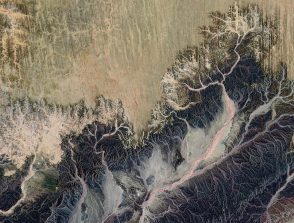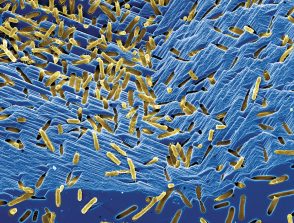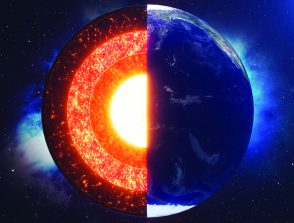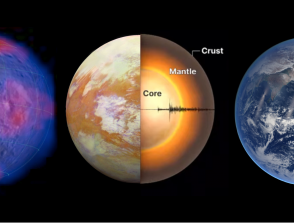Thermal Tides in the Martian Atmosphere
06/06/2023
Campus Paris-Rive-Gauche
15:00
Planetary science seminars
522, bât. Lamarck
Siteng FAN
Laboratoire de Météorologie Dynamique (LMD)
Atmospheric thermal tides are planetary-scale harmonic responses driven by diurnal solar forcing and influenced by planetary topography. As results of solar heating absorbed directly by the atmosphere and exchanged with the surface, thermal tides in the Martian atmosphere usually have large amplitudes due to its low heat capacity, and dominate the diurnal temperature variations throughout the thin atmosphere. In this talk, I will present results of the analysis of thermal tides and their seasonal variations using temperature profiles retrieved from infrared spectra obtained by the TIRVIM Fourier-spectrometer, part of the Atmospheric Chemistry Suite (ACS) onboard the ExoMars Trace Gas Orbiter (TGO) and the Emirates Mars InfraRed Spectrometer (EMIRS) instrument onboard the Emirates Mars Mission (EMM) Hope spacecraft. Design of non-Sun-synchronous orbits of these spacecrafts enable the analysis of diurnal temperature variations with a full local time coverage obtained within a short period of time. Wave mode decomposition is applied to these diurnal variations to derive the tide amplitudes and phases. The results show good agreements with predictions made by the Mars Planetary Climate Model (PCM), previously known as the Laboratoire de Météorologie Dynamique (LMD) Mars Global Circulation Model (GCM), except for decent differences in phases. Possible tide excitation sources are also examined through a series of sensitivity tests using Mars PCM. This work provides valuable information on understanding physical processes in the Martian atmosphere on a diurnal scale. Connection details Zoom Meeting ID: 876 7331 0489 Passcode: 856642







